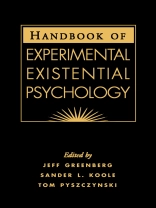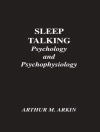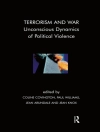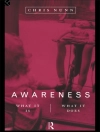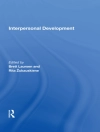Social and personality psychologists traditionally have focused their attention on the most basic building blocks of human thought and behavior, while existential psychologists pursued broader, more abstract questions regarding the nature of existence and the meaning of life. This volume bridges this longstanding divide by demonstrating how rigorous experimental methods can be applied to understanding key existential concerns, including death, uncertainty, identity, meaning, morality, isolation, determinism, and freedom. Bringing together leading scholars and investigators, the Handbook presents the influential theories and research findings that collectively are helping to define the emerging field of experimental existential psychology.
Cuprins
I. Introduction1. Experimental Existential Psychology: Exploring the Human Confrontation with Reality, Tom Pyszczynski, Jeff Greenberg, and Sander L. Koole II. Existential Realities 2. The Cultural Animal: Twenty Years of Terror Management Theory and Research, Sheldon Solomon, Jeff Greenberg, and Tom Pyszczynski3. The Blueprint of Terror Management: Understanding the Cognitive Architecture of Psychological Defense against the Awareness of Death, Jamie Arndt, Alison Cook, and Clay Routledge 4. A Multifaceted Model of the Existential Meanings, Manifestations, and Consequences of the Fear of Personal Death, Victor Florian and Mario Mikulincer5. The Beast within the Beauty: An Existential Perspective on the Objectification and Condemnation of Women, Jamie L. Goldenberg and Tomi-Ann Roberts 6. Paradise Lost and Reclaimed: A Motivational Analysis of Human-Nature Relations, Sander L. Koole and Agnes van den Berg7. Risk Taking in Adolescence: ‘To Be or Not to Be’ Is Not Really the Question, Orit Taubman – Ben-Ari8. Random Outcomes and Valued Commitments: Existential Dilemmas and the Paradox of Meaning, Ronnie Janoff-Bulman and Darren J. Yopyk III. Systems of Meaning and Value9. Religion: Its Core Psychological Functions, C. Daniel Batson and E. L. Stocks10. In Search of the Moral Person: Do You Have to Feel Really Bad to Be Good?, June Price Tangney and Debra J. Mashek 11. An Existentialist Approach to the Social Psychology of Fairness: The Influence of Mortality and Uncertainty Salience on Reactions to Fair and Unfair Events, Kees van den Bos12. Zeal, Identity, and Meaning: Going to Extremes to Be One Self, Ian Mc Gregor13. Nostalgia: Conceptual Issues and Existential Functions, Constantine Sedikides, Tim Wildschut, and Denise Baden 14. Existential Meanings and Cultural Models: The Interplay of Personal and Supernatural Agency in American and Hindu Ways of Responding to Uncertainty, Maia J. Young and Michael W. Morris15. Cultural Trauma and Recovery: Cultural Meaning, Self-Esteem, and the Reconstruction of the Cultural Anxiety Buffer, Michael B. Salzman and Michael J. Halloran16. Terror’s Epistemic Consequences: Existential Threat and the Quest for Certainty and Closure, Mark Dechesne and Arie W. Kruglanski 17. The Ideological Animal: A System Justification View, John T. Jost, Grainne Fitzsimons, and Aaron C. Kay IV. The Human Connection18. The Terror of Death and the Quest for Love: An Existential Perspective on Close Relationships, Mario Mikulincer, Victor Florian, and Gilad Hirschberger19. Transcending Oneself through Social Identification, Emanuele Castano, Vincent Yzerbyt, and Maria-Paola Paladino 20. Moral Amplification and the Emotions That Attach Us to Saints and Demons, Jonathan Haidt and Sara Algoe21. Ostracism: A Metaphor for Death, Trevor I. Case and Kipling D. Williams22. I-Sharing, the Problem of Existential Isolation, and Their Implications for Interpersonal and Intergroup Phenomena, Elizabeth A. Pinel, Anson E. Long, Mark Landau, and Tom Pyszczynski 23. Bellezza in Interpersonal Relations, Robert A. Wicklund and Renata Vida-Grim V. Freedom and the Will24. Being Here Now: Is Consciousness Necessary for Human Freedom?, John A. Bargh25. Ego Depletion, Self-Control, and Choice, Kathleen D. Vohs and Roy F. Baumeister 26. Workings of the Will: A Functional Approach, Julius Kuhl and Sander L. Koole27. The Roar of Awakening: Mortality Acknowledgment as a Call to Authentic Living, Leonard Martin, Keith Campbell, and Christopher D. Henry 28. Autonomy Is No Illusion: Self-Determination Theory and the Empirical Study of Authenticity, Awareness, and Will, Richard Ryan and Edward Deci 29. Non-Becoming, Alienated Becoming, and Authentic Becoming: A Goal-Based Approach, Tim Kasser and Kennon M. Sheldon VI. Postmortem30. The Best of Two Worlds: Experimental Existential Psychology Now and in the Future, Sander L. Koole, Jeff Greenberg, and Tom Pyszczynski
Despre autor
Jeff Greenberg is Professor of Psychology at the University of Arizona and associate editor of the Journal of Personality and Social Psychology. He received his Ph D from the University of Kansas in 1982. Dr. Greenberg has published many articles and chapters, focused primarily on understanding self-esteem, prejudice, and depression. In collaboration with Tom Pyszczynski and Sheldon Solomon, he developed terror management theory, a broad theoretical framework that explores the role of existential fears in diverse aspects of human behavior. He is coauthor of Hanging on and Letting Go: Understanding the Onset, Progression, and Remission of Depression and In the Wake of 9/11: The Psychology of Terror, and is coeditor of Motivational Analyses of Social Behavior.Sander L. Koole is Associate Professor of Psychology at the Free University in Amsterdam. He received his Ph D in social psychology from the University of Nijmegen in 2000. Dr. Koole has published articles and chapters on self-affirmation, implicit self-esteem, terror management processes, and affect regulation. In collaboration with Julius Kuhl and other colleagues, his recent work has focused on personality systems interactions theory, an integrative perspective that seeks to understand the functional mechanisms that underlie human motivation and personality processes. Together with Constantine Sedekides, he was guest editor of a special issue of Social Cognition on The Art and Science of Self-Defense. Tom Pyszczynski is Professor of Psychology at the University of Colorado at Colorado Springs. He received his Ph D in social psychology from the University of Kansas in 1980. In collaboration with Jeff Greenberg and Sheldon Solomon, Dr. Pyszczynski developed terror management theory. His recent research has focused on applications of terror management theory to questions about the need for self-esteem, prejudice and intergroup conflict, unconscious processes, anxiety, and ambivalence regarding the human body. He is coauthor of In the Wake of 9/11 and Hanging on and Letting Go.
